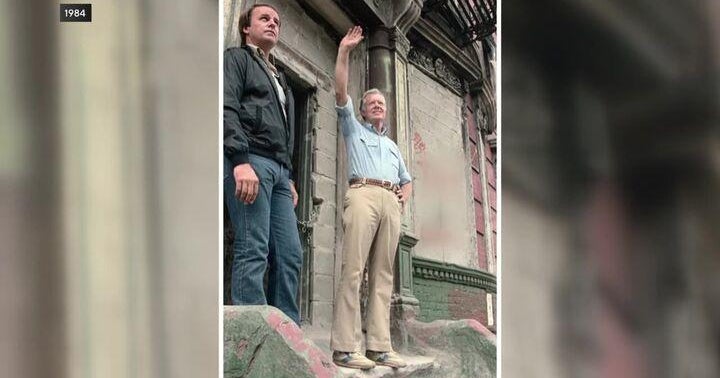Triathlete Back In Good Health After Being Saved From Clinical Death
COPIAGUE, N.Y. (CBSNewYork) -- A Long Island man was clinically dead for 11 minutes when his heart stopped during the New York City Triathlon this past summer, but he has defied the odds.
Chris Lapak, 52, of Copiague, shared his story exclusively with CBS 2's Vanessa Murdock.
"I was so confident. I was telling my family the day before the race like, 'What could happen? What's the worst that could happen?'" Lapak said.
But given what happened during the Triathlon, he was profoundly lucky to be alive two months later.
On Aug. 3, with his family by his side, Lapak was ready to compete in the triathlon – his first. He lined up at the start, and dove in for the 1,500-meter swim, but never made it to the finish line.
"We had seen somebody kind of in distress," said Renee Lapak. "I did not know it was my husband until about four or five hours later."
In the middle of swimming, Lapak's heart stopped. It was sudden cardiac arrest, and he was clinically dead for 11 minutes.
Chris Lapak said he has no memory of any of it.
"The God's honest truth is I remember nothing from when I went to bed Saturday night the day before the race," he said. "And I have no real memories until I woke up in the hospital five days later."
He woke up at Mount Sinai St. Luke's Hospital on the Upper West Side, under the care of cardiologist Dr. Eyal Herzog.
"This is what we call a chronic occlusion, and this vessel should supply the front part of the heart," Herzog said as he showed an image of Lapak's heart. "I still consider it a miracle in his case, because all the odds were against him."
Lapak was well aware of that reality afterward.
"When I was brought into the hospital there was less than a five percent chance I was going to live, and an even greater chance I was going to – like a 98 percent chance I was going to be brain dead," he said.
But Lapak is very much alive and is sharp as a tack. In part, it is because doctors cooled his body down to 91.4 degrees in a procedure called therapeutic hypothermia.
The purpose, Dr. Herzog said, is "to give rest to the whole system and prevent damage to the brain."
"I had more tubes and things going on in me than I've ever seen on TV show," Lapak said. "I mean, it was pretty crazy."
A machine does the work, cooling the body from the inside and gradually bringing it back to normal. The whole process takes three days.
After that, Lapak had open heart surgery and a defibrillator installed.
And on Friday, just 82 days later, he was virtually back to normal.
"His cardiac performance now is normal," Lapak said. "His brain is sharp as can be."
And with his doctor's green light, Lapa is back to running and swimming at the gym.
Lapak credits not one person, but 100 with making it all possible. Lifeguards moved him onto a surfboard, transported him on a jetski, and then loaded him onto an FDNY boat to take him to shore.
EMS never stopped CPR.
"If one person wasn't doing what they we're supposed to be doing, I wouldn't be here," Lapak said.
It was a flawless execution that saved a very grateful man's life.
You May Also Be Interested In These Stories



